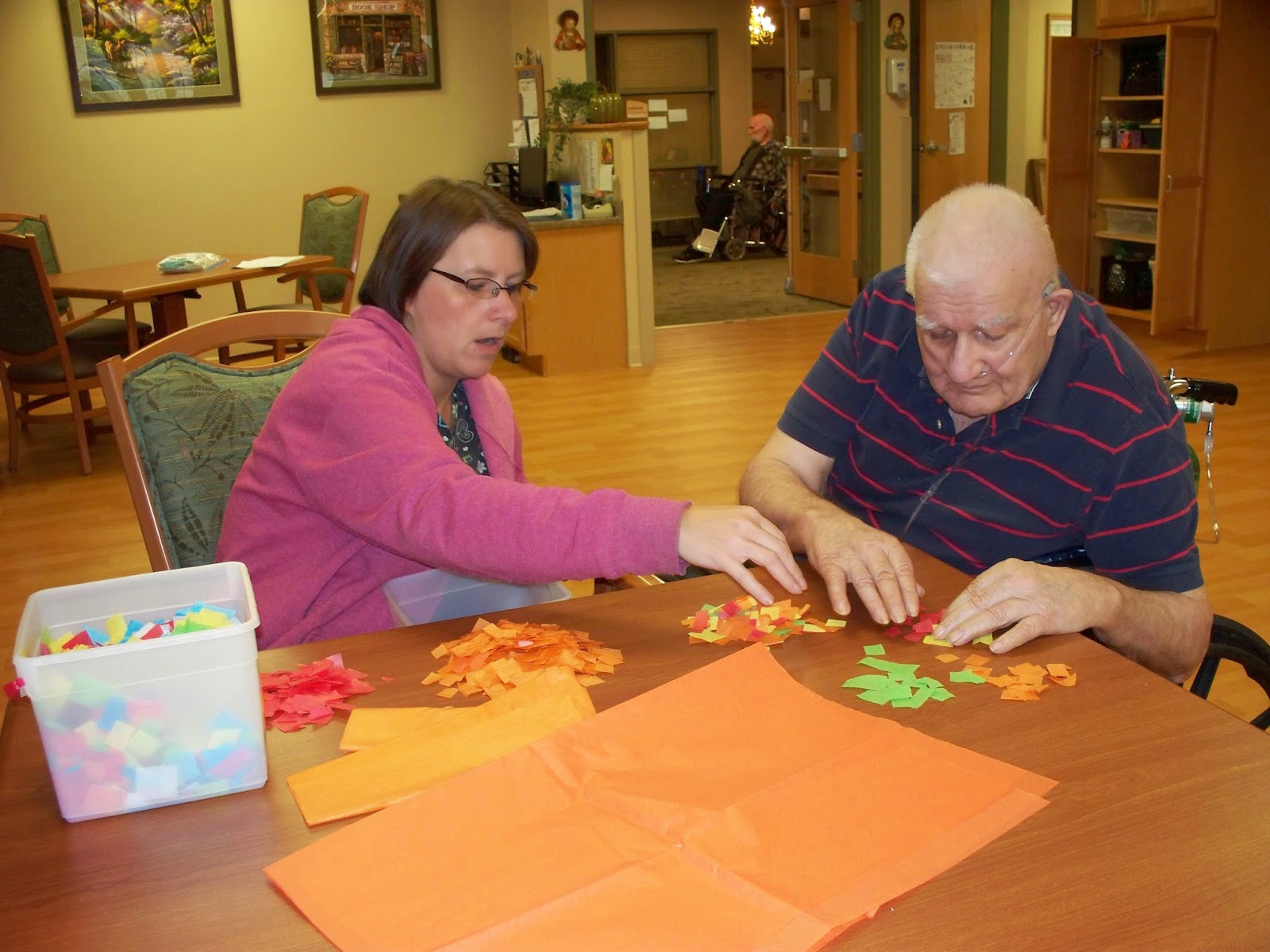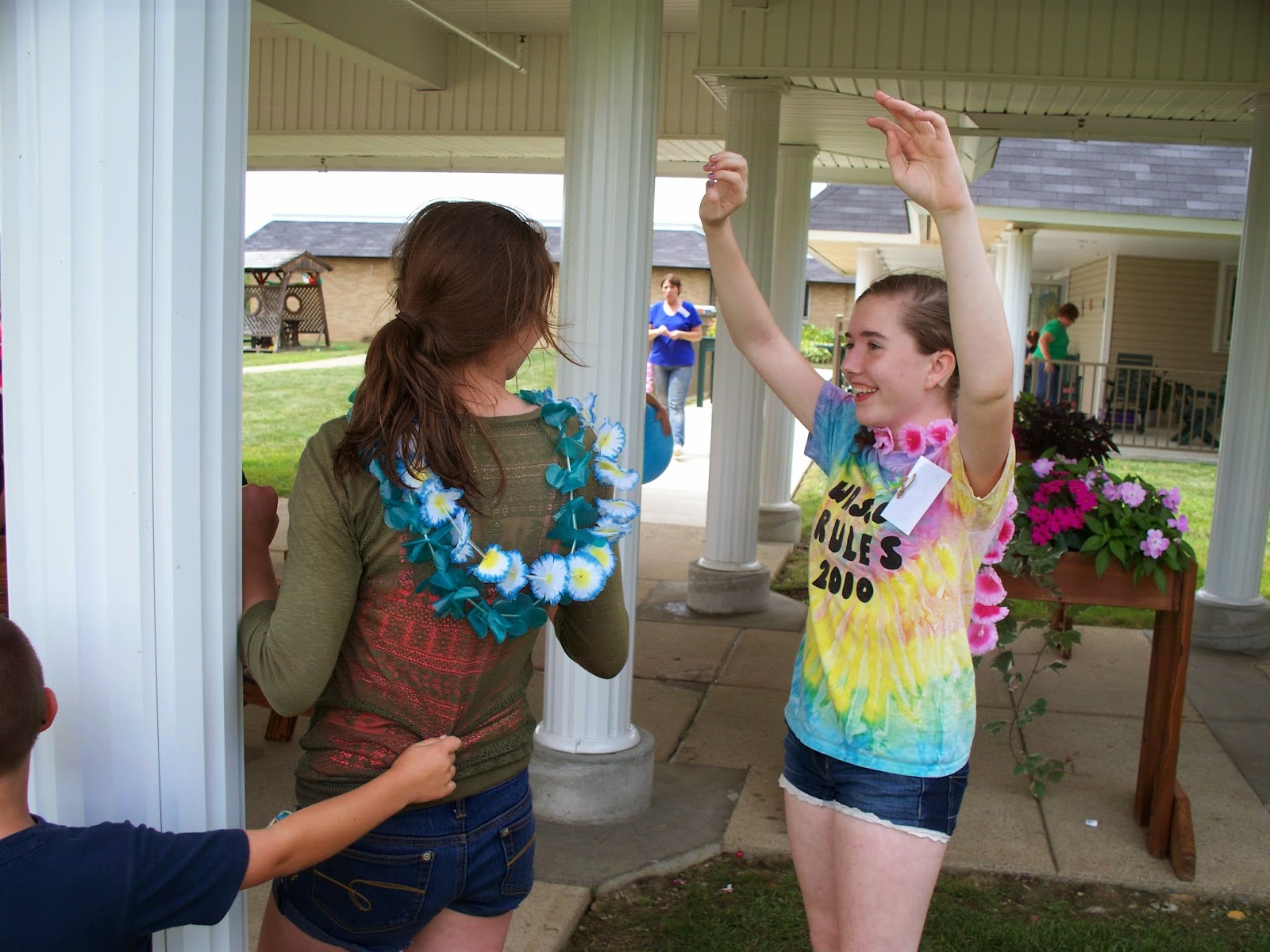The DuBois Honor Guard helped to celebrate Veteran's Day again this year. We consider it a special day at CKM and do our best to honor our veterans in a special way. This year, along with a certificate, they received a special star from the Daughters of the American Revolution. Prayers, stories, words from our war veterans, and the honor guard all helped to pay tribute to our veterans, those we have with us and those we have lost. A recollection of his days as a POW by Senator John McCain brought tears to many and is printed at the end of this post for those who would like to read it.
 |
| Al Lilja with Tom Berryhill |
 |
| Eleanor Jordan with her daughter and grandaughter |
 |
| Doris and John Gagliardi |
 |
| Tom Berryhill |
 |
| DuBois Honor Guard |
 |
| Steve Skraba and Joe Volansky |
In the early years of our imprisonment, the North Vietnamese kept us in solitary confinement of two or three to a cell. In 1971, the North Vietnamese moved us from these conditions of isolation into large rooms with as many as 30 to 40 men to a room. This was, as you can imagine, a wonderful change. And it was a direct result of the efforts of millions of Americans, led by people like Ross Perot, and Nancy and Ronald Reagan, on behalf of a few hundred POW’s, 10,000 miles from home.
One of the men who moved into my cell was Mike Christian. Mike came from Selma, Alabama. He didn’t wear a pair of shoes until he was 13 years old. At 17, he enlisted in the U.S. Navy. He later earned a commission. He became a Naval aviator, and was shot down and captured in 1967. Mike had a keen and deep appreciation for the opportunities this country—and our military—provide for people who want to work and want to succeed.
The uniforms we wore in prison consisted of a blue short-sleeved shirt, trousers that looked like pajamas, and rubber sandals that were made out of automobile tires.
As part of the change in treatment, the Vietnamese allowed some prisoners to receive packages from home. In some of these packages were handkerchiefs, scarves and other items of clothing. Mike got himself a piece of white cloth and a piece of red cloth and fashioned himself a bamboo needle. Over a period of a couple of months, he sewed the American flag on the inside of his shirt.
Every afternoon, before we had a bowl of soup, we would hang Mike’s shirt on the wall of our cell, and say the Pledge of Allegiance. I know that saying the Pledge of Allegiance may not seem the most important or meaningful part of our day now. But I can assure you that—for those men in that stark prison cell—it was indeed the most important and meaningful event of our day.
One day, the Vietnamese searched our cell and discovered Mike’s shirt with the flag sewn inside, and removed it. That evening they returned, opened the door of the cell, called for Mike Christian to come out, closed the door of the cell, and for the benefit of all of us, beat Mike Christian severely.
Then they opened the door of the cell and threw him back inside. He was not in good shape. We tried to comfort and take care of him as well as we could. The cell in which we lived had a concrete slab in the middle on which we slept. Four naked light bulbs hung in each corner of the room.
After things quieted down, I went to lie down to go to sleep. As I did, I happened to look in the corner of the room. Sitting there beneath that dim light bulb, with a piece of white cloth, a piece of red cloth, another shirt and his bamboo needle, was my friend Mike Christian, sitting there, with his eyes almost shut from his beating, making another American flag. He was not making that flag because it made Mike Christian feel better. He was making that flag because he knew how important it was for us to be able to pledge our allegiance to our flag and our country.
Senator John McCain





































































